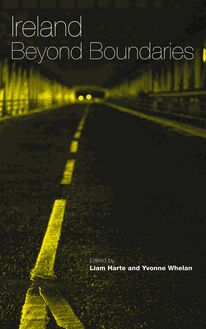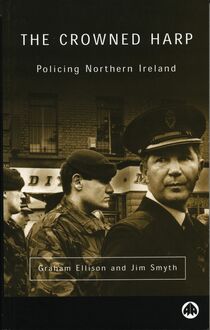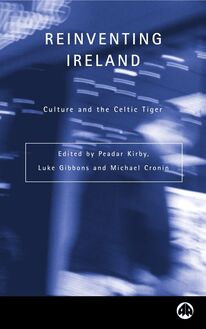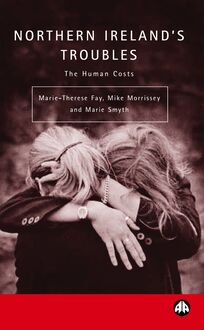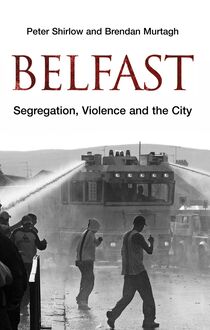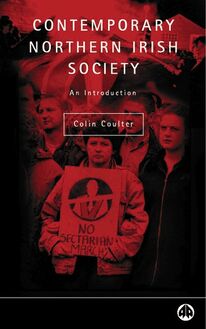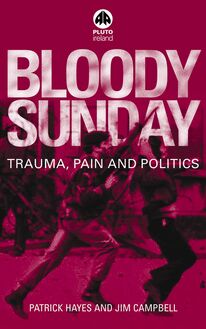-
 Univers
Univers
-
 Ebooks
Ebooks
-
 Livres audio
Livres audio
-
 Presse
Presse
-
 Podcasts
Podcasts
-
 BD
BD
-
 Documents
Documents
-
- Cours
- Révisions
- Ressources pédagogiques
- Sciences de l’éducation
- Manuels scolaires
- Langues
- Travaux de classe
- Annales de BEP
- Etudes supérieures
- Maternelle et primaire
- Fiches de lecture
- Orientation scolaire
- Méthodologie
- Corrigés de devoir
- Annales d’examens et concours
- Annales du bac
- Annales du brevet
- Rapports de stage
La lecture à portée de main
292 pages
English
Découvre YouScribe en t'inscrivant gratuitement
Je m'inscrisDécouvre YouScribe en t'inscrivant gratuitement
Je m'inscris
Obtenez un accès à la bibliothèque pour le consulter en ligne
En savoir plus
En savoir plus
292 pages
English
Obtenez un accès à la bibliothèque pour le consulter en ligne
En savoir plus
En savoir plus

Description
This is a critical overview of the various sources of social and political identity in Northern Ireland. The book examines the key variables of sociology - status, class and gender and, in this case, ethno-religion - and explains why ethno-religious sentiment has become the principle source of political identity.
A range of themes are covered: the role and status of women; the representations of the conflict and peace process in the media; sport; and the importance of popular music.
Introduction
1. The Nature of Division: Ethnicity, Nationalism & Sectarianism
2. The Significance of Social Class
3. The Status and Position of Women
4. Official Representations of the Conflict in Northern Ireland: The British State and the Media
5. Alternative Representations of the Conflict in Northern Ireland: Republican and Loyalist Murals
Conclusion
References
Index
A range of themes are covered: the role and status of women; the representations of the conflict and peace process in the media; sport; and the importance of popular music.
Introduction
1. The Nature of Division: Ethnicity, Nationalism & Sectarianism
2. The Significance of Social Class
3. The Status and Position of Women
4. Official Representations of the Conflict in Northern Ireland: The British State and the Media
5. Alternative Representations of the Conflict in Northern Ireland: Republican and Loyalist Murals
Conclusion
References
Index
Sujets
Informations
| Publié par | Pluto Press |
| Date de parution | 20 octobre 1999 |
| Nombre de lectures | 0 |
| EAN13 | 9781849640121 |
| Langue | English |
| Poids de l'ouvrage | 1 Mo |
Informations légales : prix de location à la page 0,6250€. Cette information est donnée uniquement à titre indicatif conformément à la législation en vigueur.
Extrait
CONTEMPORARY NORTHERN IRISH SOCIETY An Introduction
Colin Coulter
P Pluto Press LONDON • STERLING, VIRGINIA
First published 1999 by Pluto Press 345 Archway Road, London N6 5AA and 22883 Quicksilver Drive, Sterling, VA 20166–2012, USA
Copyright © Colin Coulter 1999
The right of Colin Coulter to be identified as the author of this work has been asserted by him in accordance with the Copyright, Designs and Patents Act 1988.
British Library Cataloguing in Publication Data A catalogue record for this book is available from the British Library
ISBN 0 7453 1254 3 hbk
Library of Congress Cataloging in Publication Data Coulter, Colin, 1966– Contemporary Northern Irish society : an introduction / Colin Coulter. p. cm. — (Contemporary Irish studies) Includes bibliographical references. ISBN 0–7453–1254–3 1. Northern Ireland—Social conditions—20th century. 2. Social conflict—Northern Ireland—History—20th century. I. Title. II. Series. HN400.3.A8 C68 1999 306'.09416—dc21 99–28
Designed and produced for Pluto Press by Chase Production Services, Chadlington, OX7 3LN Typeset from disk by Stanford DTP Services, Northampton Printed in the EC by TJ International, Padstow
413 CIP
For my parents Sadie & Tommy Coulter
Contents
Acknowledgements
Introduction Another book on Northern Ireland? The formation of Northern Irish society3 Some words about words
1 The Nature of Division: Ethnicity, Nationalism and Sectarianism Some definitions The dimensions of ethnic division in Northern Ireland Ethnicity and nationalism A sectarian conflict? Conclusion
2 The Significance of Social Class The distribution of life chances The other apartheid Class as a social identity76 Class as a political identity78 Why ethnonational rather than class politics? Conclusion
3 The Status and Position of Women The domestic sphere The regulation of fertility111 The public sphere: work The public sphere: education The public sphere: politics Conclusion
4 Official Representations of the Conflict in Northern Ireland: The British State and the Media The media and the outbreak of the troubles Public relations and dirty tricks Advertising for peace
ix
1 1
8
10 10 12 43 51 59
61 63 72
95 99
101 102
113 125 130 148
149 150 152 157
viii
5
CONTEMPORARY NORTHERN IRISH SOCIETY
Regulating the media ‘Keeping their own house in order’: self-censorship and the ‘reference upwards’ system Media battles: ‘Real Lives’ and ‘Death on the Rock’ Explicit censorship: the 1988 broadcasting ban Conclusion
Alternative Representations of the Conflict in Northern Ireland: Republican and Loyalist Murals The history of wall murals in Northern Ireland Irish republicanism Republican murals Ulster loyalism Loyalist murals Conclusion
Conclusion Good times for a change?
References Index
182
184 190 194 198
200
202 206 209 233 235 251
253 253
258 274
Acknowledgements
This book is the outcome of living and working in two rather different places: Belfast and Maynooth. I would like to take this opportunity to acknowledge the debts I have accumulated in both places. For the best part of a decade from the mid 1980s on I was a student in the Queen’s University of Belfast. I wish to thank those individuals who helped me during that time and indeed who have helped me since: Bob Cormack, Liam O’Dowd, Renee Prendergast, Jim Smyth, Henry McNally, Darin McCrystal, Billy Marcus, Patricia Lundy, Richard Kirkland, Dave Calder, Theresa Callan, Niamh Moore, Fiona O’Neill, Jim McAuley and Mark McGovern. A particular debt is owed to Pete Shirlow and Alan Bairner for providing friendship and assistance when it was needed most. Thanks also to the inimitable Sam Porter who has been a constant, if unlikely, source of both inspiration and fashion advice. Since January of 1995 I have taught in the Department of Sociology in the National University of Ireland, Maynooth. I want to express my gratitude to all the people who have made my time in Maynooth so enjoyable. In particular I wish to thank Tara Coogan, Linda Connolly, Steve Coleman, Mairead Mahon, Gavin McArthur, Noel Kavanagh, Seaghan Pól Mac Fionmhcáin, Claudine Favrat, Cathal MacDonagh, Dave Slattery, Mairead Slattery, Jamie Saris, Lisa McCaffrey, Joe Cleary, Jane Gray, Honor Fagan, Eamonn Slater, Tony Cunningham, Martin Daniel, Ken Duffy and Heather Laird. Last but certainly not least I want to thank the Sociology and CCIS students of NUI Maynooth for their support and indulgence.
ix
Introduction
ANOTHER BOOK ON NORTHERN IRELAND?
People living in Northern Ireland are wont to insist that outsiders neither understand nor care about the difficulties that beset the province. This familiar grievance has of course some basis in truth. The contention that the rest of the world remains essentially indifferent to the plight of the six counties has, however, been seriously questioned by modern trends in academic writing. Over the last three decades literally thousands of academic books and articles have sought to address the various issues associated with ‘the troubles’ (Whyte 1991). Indeed the level of attention devoted to the province has been such that it has become a commonplace assertion that Northern Ireland represents – in proportionate terms at least – the most researched region on the face of the planet. The multiple animosities that frequently contaminate relations between Protestants and Catholics in the six counties have been set out for public perusal. Every turn in the dismal recent history of the province has been documented. The stories of those who have killed or been killed during ‘the troubles’ have been recorded, often in heartrending detail. The purpose of this particular book is rather different from most of those that deal with the nature of contemporary Northern Irish society. The chapters that follow do not seek simply to tell yet again the sorry tale of the troubles. At various turns specific incidents and passages from recent Northern Irish history are sketched because they happen to be germane to the discussion at hand. The text that follows does not, however, set out to provide an exhaustive narrative of the horrific events that have overtaken the province since the late 1960s. It is presumed that most readers possess at least a rudimentary knowledge of the occurrences that have ensured that Northern Ireland has come to be synonymous around the world with political violence. It is hoped that the specific moments and sequences mentioned in the text will be documented with sufficient clarity so as to be meaningful even to those who are entirely unfamiliar with the narrative detail of ‘the troubles’.
1
2
CONTEMPORARY NORTHERN IRISH SOCIETY
The intention of this book then is not to provide yet another political history of the province but rather to offer an overview of the particular social formation that presently exists within the six counties. The focus of the text will hopefully prove somewhat broader than most other existing portraits of contemporary Northern Irish society. Social scientists have frequently fallen prey to a distinctly narrow understanding of social and political identity in the six counties. The people of the province are often depicted simply as the bearers of particular ethnic or national identities that are conventionally designated as ‘unionist’ or ‘nationalist’. The preoccupation of social and political scientists with these particular ontological formations is in part understandable. Ethnonational sentiment has after all made an enormous impact upon the manner in which Northern Irish people think, feel and act. Indeed a large proportion of this book is devoted to examining the nature of the opposition between ‘unionism’ and ‘nationalism’. While eth-nonational feeling evidently represents an essential source of social and political identity in Northern Ireland it is not, however, the only one. The outlook and conduct of people living in the six counties, as elsewhere, are also crucially influenced by class location and gender convention. An adequate understanding of the nature of contemporary Northern Irish society requires, therefore, an appreciation that the distinctive social and political personae prevalent within the six counties emerge out of the complex interplay of a range of seemingly discrete identities. Consequently this book seeks to acknowledge not only the salience of ethnonational persuasion but also the critical importance of class and gender distinctions to the life of the province. The first three chapters of the book examine the most important sources of community and distinction in Northern Ireland. The final two consider the manner in which the loyalties and hatreds characteristic of the province tend to be perceived. In relative terms at least, the troubles have been a decidedly low level conflict. The violence that has afflicted the six counties in recent generations has of course been horrific and unnecessary. Nonetheless the death toll from the troubles remains minuscule compared to that of other contemporary ethnic conflicts in eastern Europe or central Africa. Indeed it is hard to shake the conviction that it is in part the presumed novelty of white westerners killing other white westerners that has drawn such disproportionate attention to the affairs of Northern Ireland. Were the people of the province the residents of another region beyond the pale of the ‘civilised’ first world theirs would truly be a forgotten conflict. The comparatively minor scale
INTRODUCTION
3
of the troubles reflects in part an appreciation among the various combatants that they simply cannot win the war. In the absence of a likely military solution the various players in the conflict have sought to advance their interests through other means. Over the last 30 years Northern Ireland has become the site of intense ideological dispute. Various parties have attempted to mobilise support for their specific interests both within and without the six counties. The nature of the ideological contest that has attended the troubles is scrutinised in the two chapters that close the book. The endeavours of the British state to ensure the dominance of the metropolitan reading of the ‘Northern Ireland problem’ are examined. The focus then shifts towards the attempts of republicans and loyalists respectively to propagate their own distinctive interpretation of the conflict in the province.
THE FORMATION OF NORTHERN IRISH SOCIETY
The purpose of this book is, therefore, to document the manner in which contemporary Northern Irish society is organised, experienced and imagined. The particular social formation that currently obtains within the six counties is the product of at least three important circumstances or processes. Each of these sub-stantially informs the discussion that follows and hence is worth underlining at the outset. First, and most obviously, Northern Ireland is the site of an enduring ethnonational dispute (Wright 1987). The seeming inability of Protestants and Catholics to ‘get along’ with one another invariably and understandably perplexes outsiders who often otherwise consider Northern Irish people to be thoroughly agreeable. The persistence of ethnic conflict within the six counties has ensured that Northern Ireland has come to be regarded in some quarters as ‘a place apart’ from the modern world (Rose 1982). Moreover, the preoccupation with certain ostensibly religious concerns that feed into ethnonational persuasion has meant that the people of the province are frequently portrayed as entirely immune to the counsel of reason. The conviction that Northern Irish people are the demented charges of atavistic passions has of course been articulated through conveniently crass racist stereotypes that have proved depressingly resilient. The assumption that the conflict in Northern Ireland represents simply an expression of the irrational collapses under even the most cursory inspection. While the events of the last 30 years may well
4
CONTEMPORARY NORTHERN IRISH SOCIETY
have been abhorrent they could scarcely be considered to have been aberrant. The tensions and divisions that simmer within the six counties are at some level a rational expression of the manner in which Northern Irish society has been and indeed continues to be organised. The apparently ‘sectarian’ enmities that infect Northern Ireland owe their origins largely to the rather more temporal matters that attend the distribution of life chances in the province. The seemingly exotic concerns of Northern Irish people transpire to be neither unusual nor irrational. Indeed the issues that are dear to the citizens of the province turn out to bear a close resemblance to those that animate the members of most other societies. The view that the communal divisions prevalent within Northern Ireland mark the province as ‘different’ has been severely undermined by international events over the last decade. When the troubles erupted, the political violence taking place in the six counties genuinely appeared to be a throwback to a previous age. In the 1970s the fact that people who were, after all, white Europeans were willing to kill and die in the name of the sect/ethnie/nation struck most commentators as beyond belief. Two decades on, the notion of ethnonational violence has, unfor-tunately, become rather less inconceivable. The events that heralded the end of the Cold War both articulated and accelerated the emergence of particular political enterprises that privilege the rights and interests of specific ethnic, national and even racial groupings. Over the last decade ethnic and xenophobic feelings have gained ground within European societies that previously were presumed to have transcended such antiquated and irrational sentiments. The rise of ethnonational longing has meant that avowed racists have been able to assume public office, migrant workers have been burned to death in their hostels and entire multiethnic states have been sundered. Regarded against this decidedly miserable backdrop, the incidence of ethnic violence within the six counties begins to appear somewhat less peculiar than has been conventionally assumed. Indeed viewed in the light of recent events in other European countries the existence and persistence of the troubles might be taken to illustrate not the back-wardness of contemporary Northern Irish society but rather, perversely, its essential ‘modernity’. Second, and equallyevidently, Northern Ireland happens to be a capitalist society. The particular social formation that exists in the six counties is the product of a prolonged and complex process of accumulation. The province exhibits all of the inequal-
-
 Univers
Univers
-
 Ebooks
Ebooks
-
 Livres audio
Livres audio
-
 Presse
Presse
-
 Podcasts
Podcasts
-
 BD
BD
-
 Documents
Documents
-
Jeunesse
-
Littérature
-
Ressources professionnelles
-
Santé et bien-être
-
Savoirs
-
Education
-
Loisirs et hobbies
-
Art, musique et cinéma
-
Actualité et débat de société
-
Jeunesse
-
Littérature
-
Ressources professionnelles
-
Santé et bien-être
-
Savoirs
-
Education
-
Loisirs et hobbies
-
Art, musique et cinéma
-
Actualité et débat de société
-
Actualités
-
Lifestyle
-
Presse jeunesse
-
Presse professionnelle
-
Pratique
-
Presse sportive
-
Presse internationale
-
Culture & Médias
-
Action et Aventures
-
Science-fiction et Fantasy
-
Société
-
Jeunesse
-
Littérature
-
Ressources professionnelles
-
Santé et bien-être
-
Savoirs
-
Education
-
Loisirs et hobbies
-
Art, musique et cinéma
-
Actualité et débat de société
- Cours
- Révisions
- Ressources pédagogiques
- Sciences de l’éducation
- Manuels scolaires
- Langues
- Travaux de classe
- Annales de BEP
- Etudes supérieures
- Maternelle et primaire
- Fiches de lecture
- Orientation scolaire
- Méthodologie
- Corrigés de devoir
- Annales d’examens et concours
- Annales du bac
- Annales du brevet
- Rapports de stage
Signaler un problème
YouScribe
Le catalogue
Le service
© 2010-2024 YouScribe
